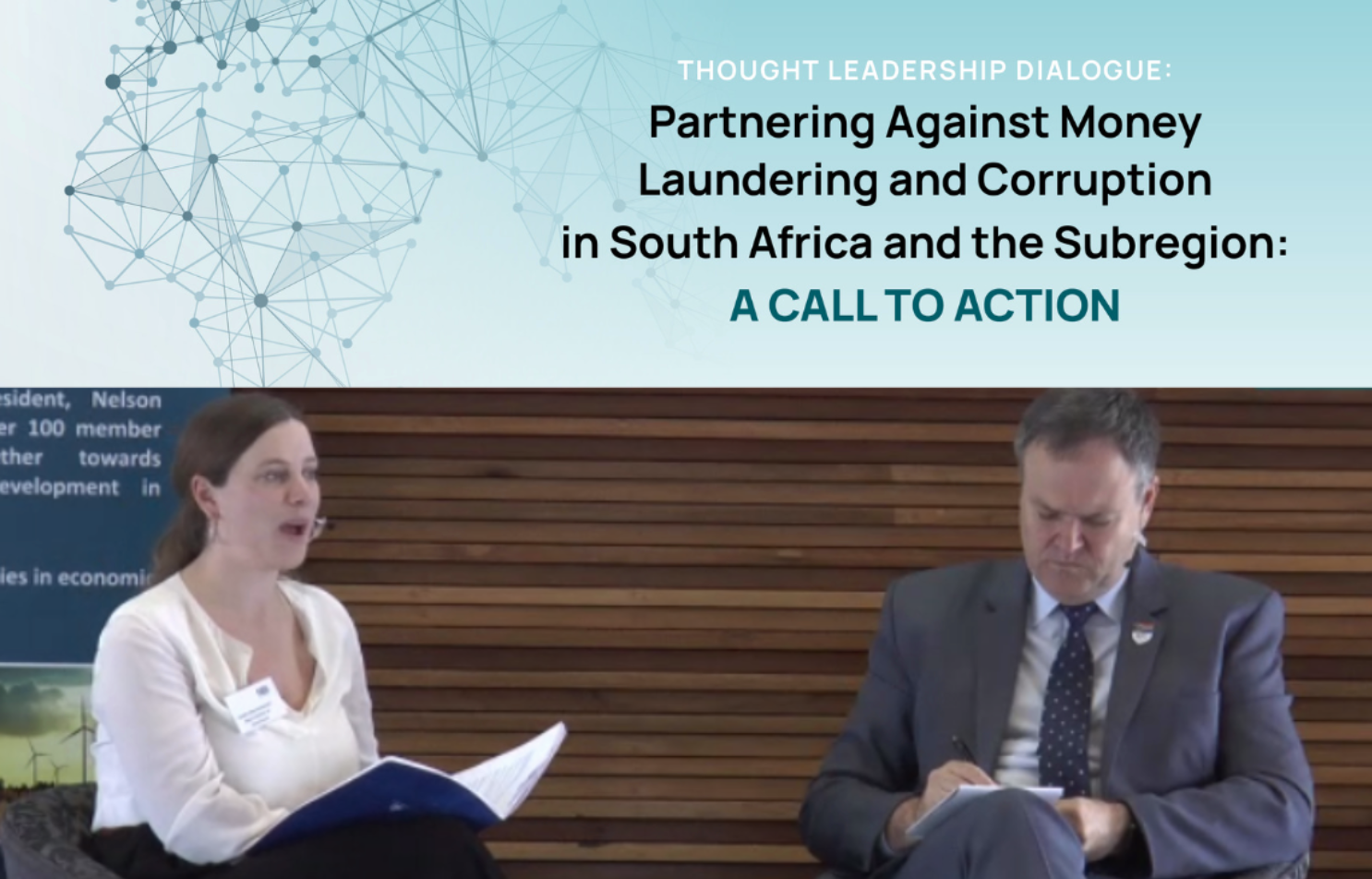Partnering against money laundering and corruption in South Africa and the subregion

What is the role of business in reducing illicit financial flows in the Southern Africa subregion? How is it evolving? What can businesses do to address corruption and money laundering risks in order to boost market growth and development and to strengthen governance systems?
To explore these questions, the Basel Institute on Governance together with the National Business Initiative (NBI), the Center for International Private Enterprise (CIPE) and Covington organised a multi-stakeholder Thought Leadership Dialogue on "Partnering Against Money Laundering and Corruption in South Africa and the Subregion".
The event took place on 21 February 2023 in hybrid format in Johannesburg, South Africa.
The role of business in addressing corruption
The lively exchange between company representatives, government officials and civil society allowed for consensus to build amongst stakeholders. The resulting strong common call to action highlighted the importance of three things:
- Curbing systemic corruption, which remains a constant thorn in Southern Africa’s development prospects. We need more experiments with impact-oriented private sector-led Collective Action against corruption. This will help move the private sector to a more active role in building accountability ecosystems and setting high standards of integrity for commercial and public finance and service.
- Effectively disrupting the cycle of illicit financial flows, which requires us to prioritise collaborative partnerships between the private and public sectors. The encouraging examples that exist in the region need be highlighted so other countries can benefit and build on existing approaches and good practices.
- Understanding that in order to slow down the fast-evolving phenomenon of corruption, business needs to take a stand. This means the private sector requires bold, transformative and courageous leadership to fight the fight, because it is a fight against corrupt activities in the private and public sectors. Businesses must be champions against corruption and not only enablers or victims of corruption.
Public-private initiatives to tackle illicit financial flows
The event also facilitated more in-depth discussion and exchange on leading regional public-private initiatives that aim to tackle illicit financial flows. During the day's second panel, champions from the public and private sectors shared their experiences of building and actively engaging in Collective Action to address money laundering risks.
Pieter Alberts, a Senior Operations Manager of the South African Financial Intelligence Centre, and Yiannis Gerakaris, Head of the Financial Crime Intelligence Unit at FirstRand Bank Group South Africa, explained their roles in the financial information-sharing partnership of the South African Anti-Money Laundering Integrated Taskforce (SAMLIT), highlighting what is possible when the private sector and public sector come together.
Led by the South African Financial Intelligence Centre, SAMLIT brings together financial institutions and financial regulatory authorities to share information that will enhance the fight against financial crime. This understanding feeds into the work of the Fusion Centre, a public-public initiative also located at the South African Financial Intelligence Centre that involves law enforcement and intelligence agencies. This collaboration between partnerships has enabled a closer and more trusted relationship between law enforcement authorities and the financial sector. Identifying cases and sharing information has proven quicker and more efficient.
"The sooner we engage, connect and share information, the better.”
– Pieter Alberts, South African Financial Intelligence Centre
Beyond the banking sector
However, the banking sector is just one of many sectors with a key role to play to address money laundering risks. Other gatekeeping institutions, such as lawyers, accountants and real estate agents, need to step up.
Some encouraging initiatives in these sectors are also springing up in the region. For example, in Malawi, Anita Mankhambo, Head of Compliance at the Malawi Financial Intelligence Authority, leads a Collective Action initiative that works with local real estate agents to professionalise the sector and reduce money laundering risks. It seeks to do this while not overburdening the small and often still unlicensed real estate agents and the budding sector overall.
An urgent need for action
With billions in illicit financial flows leaving Southern Africa every year, time is of the essence to act. Building resilient partnerships and networks that allow for early detection and prevention of illicit financial flows have to be a priority to make it harder for corrupt and criminal networks to thrive in the region.
We look forward to continuing to support these initiatives and discussions with our regional partners.




